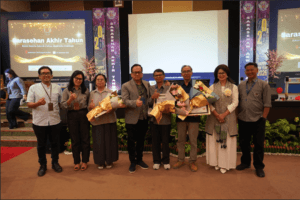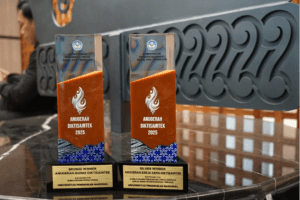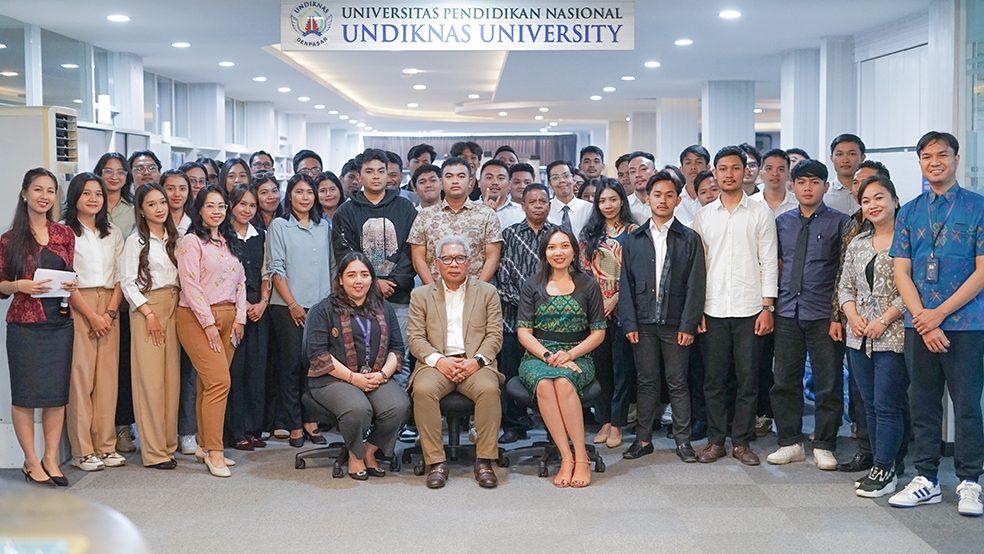
Undiknas and Peradi Denpasar Hold 11th PKPA Batch to Prepare Professional and Integrity-Driven Future Advocates
Universitas Pendidikan Nasional (Undiknas), in collaboration with the Denpasar Branch of the Indonesian Advocates Association (DPC Peradi Denpasar), has once again organized the 11th batch of the Pendidikan Khusus Profesi Advokat (PKPA) or Special Education for the Advocate Profession for the July–August 2025 period. This program is a mandatory step for aspiring advocates before taking the Advocate Professional Examination (Ujian Profesi Advokat – UPA).
The 11th batch of PKPA at Undiknas welcomed 82 participants and was conducted in a hybrid format. It featured expert speakers in the field of law who delivered sessions on topics including the Code of Ethics for Advocates, Human Rights Court Procedures, Criminal Procedure Law, and Business Competition Procedure Law.
The PKPA program is designed to equip participants with both theoretical knowledge and practical skills in various areas of law, including criminal, civil, commercial, and administrative procedures, as well as professional ethics. Sessions were delivered by experienced academics and legal practitioners, providing participants with a comprehensive view of the advocacy profession.
With the launch of the 11th PKPA batch, Undiknas once again affirms its commitment to producing professional, ethical, and competitive advocates.
Anak Agung Mia Intentilia, S.IP., M.A., the Head Coordinator of PKPA Undiknas, stated that the program attracted 82 participants from diverse backgrounds, joining both in-person at the Undiknas Campus in Denpasar and online via Zoom Meeting.
“This is the 11th batch, marking the continuation of a strategic partnership between Peradi and Undiknas in producing professional advocates. The hybrid method allows us to reach aspiring advocates from various regions,” she explained.
All materials in the PKPA program were presented by seasoned lecturers and legal practitioners, ensuring a balanced learning experience between theory and real-world application.
“We hope this program continues in the future with a strong emphasis on quality and the best service for all participants,” she added.
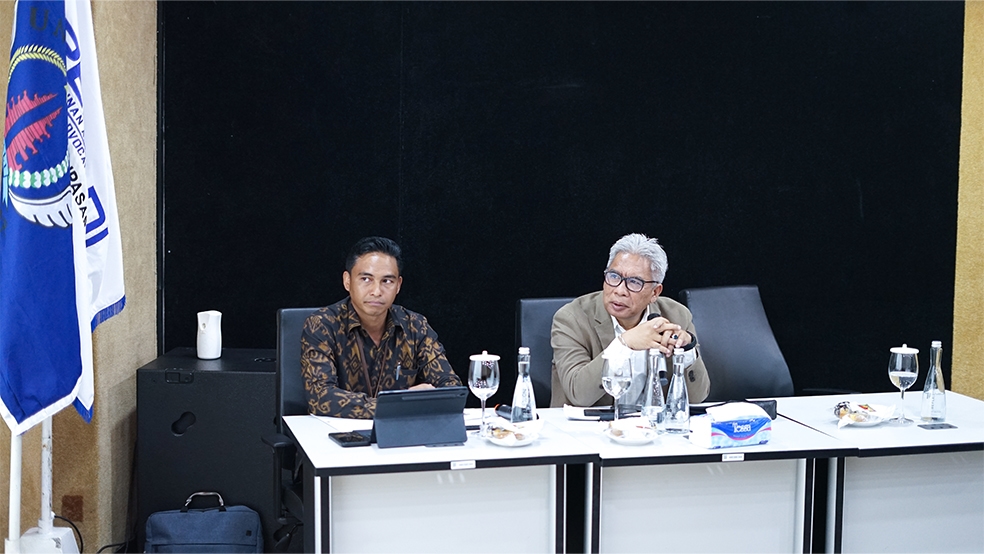
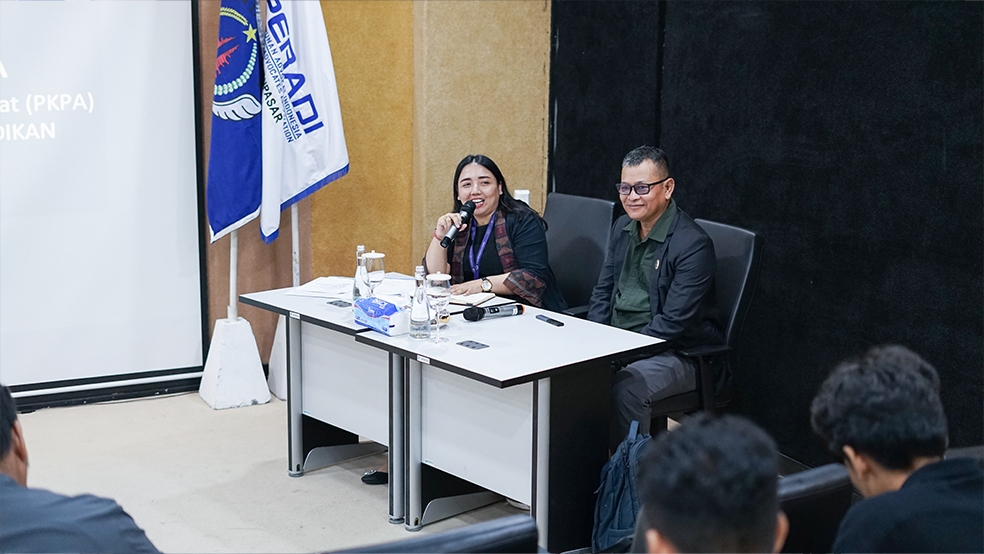
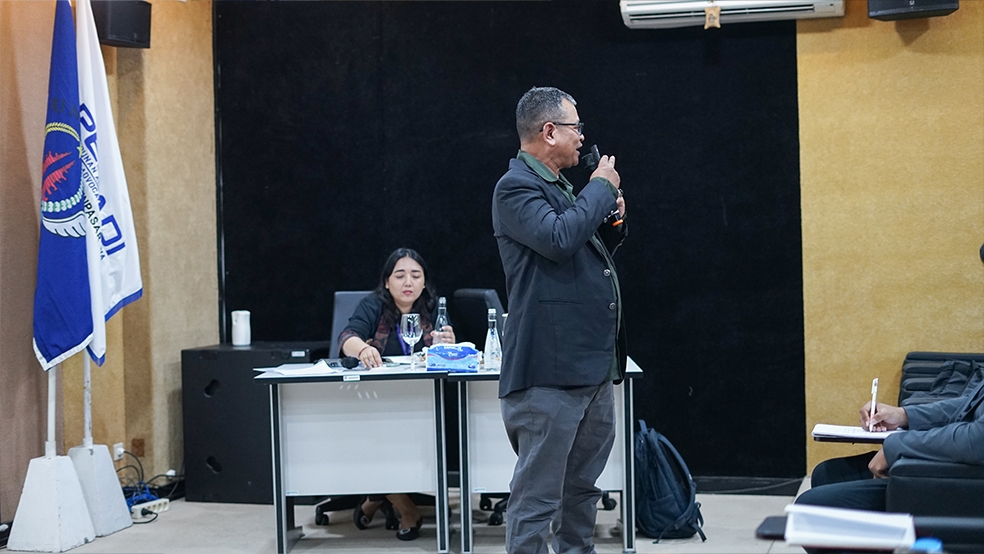
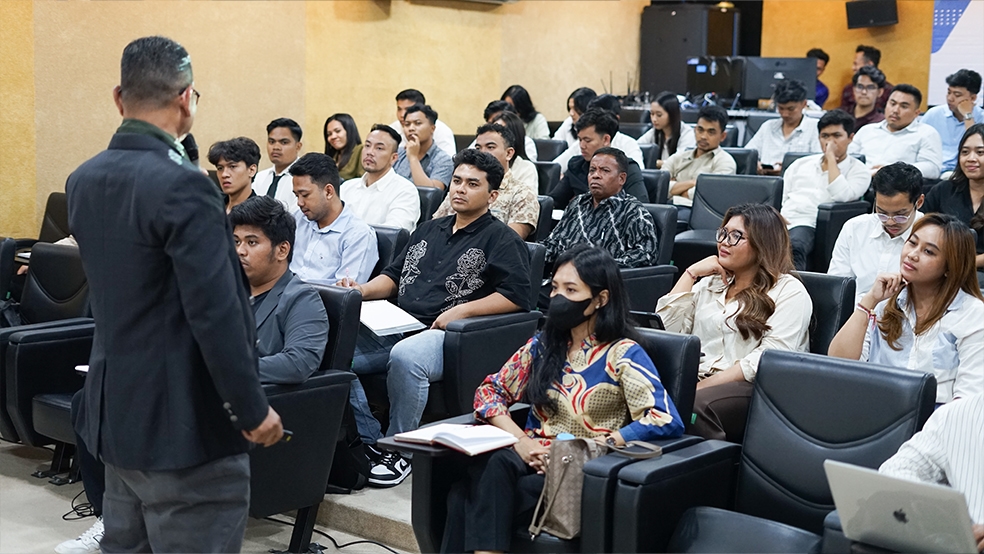
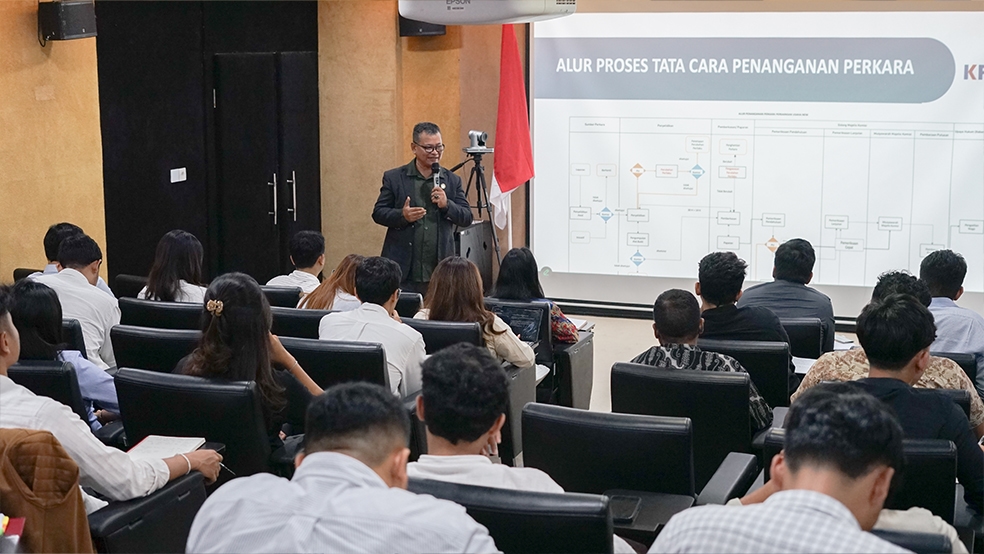
The 11th PKPA marks a concrete example of ongoing cooperation between the Undiknas Faculty of Law and DPC Peradi Denpasar. The program not only strengthens theoretical legal education but also provides practical exposure to law graduates preparing for a career in advocacy.
Kadek Julia Mahadewi, S.H., M.H., Head of the Law Study Program at Undiknas, emphasized that PKPA offers participants a comprehensive understanding of the dynamics of the legal profession.
“This program is a crucial first step in becoming a competent, disciplined, and justice-oriented advocate,” she noted.
She added that PKPA sessions featured not only lecturers and advocates but also practitioners from various judicial institutions, including judges from the State Administrative Court and the Religious Court. This provided participants with a broader, contextual understanding of the legal system and judicial processes.
One of the new topics introduced this year is Consumer Protection Law.
“This is an important topic, considering the growing number of consumer rights violations and the need for advocates to thoroughly understand both theoretical and practical aspects of handling such cases,” she explained.
I Nyoman Budi Adnyana, S.H., M.H., C.L.A., CPL., Chairman of DPC Peradi Denpasar, highlighted that the PKPA program has continued consistently over eleven batches. Together with Undiknas, they have trained more than 500 future advocates through this ongoing collaboration.
The 11th batch saw the highest number of participants to date—82 participants—making it the largest PKPA cohort ever held by Peradi in Bali.
“This achievement reflects the high level of trust that aspiring advocates place in the quality of this program conducted at Undiknas,” he emphasized.
Nyoman Budi Adnyana explained that PKPA is a mandatory stage in the journey of becoming a licensed advocate. After completing PKPA, participants must pass the national Advocate Professional Examination (UPA), which is held simultaneously across Indonesia with time zone adjustments.
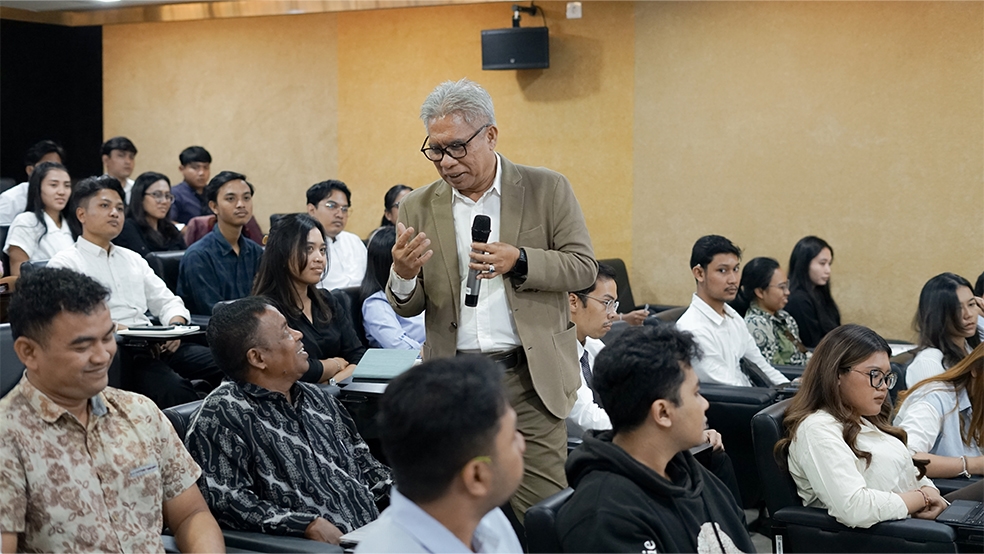
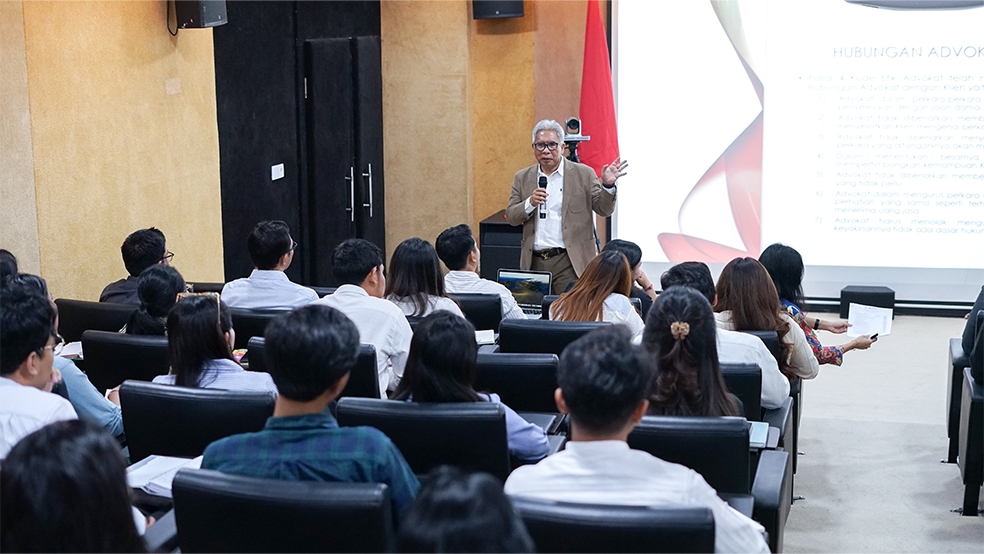
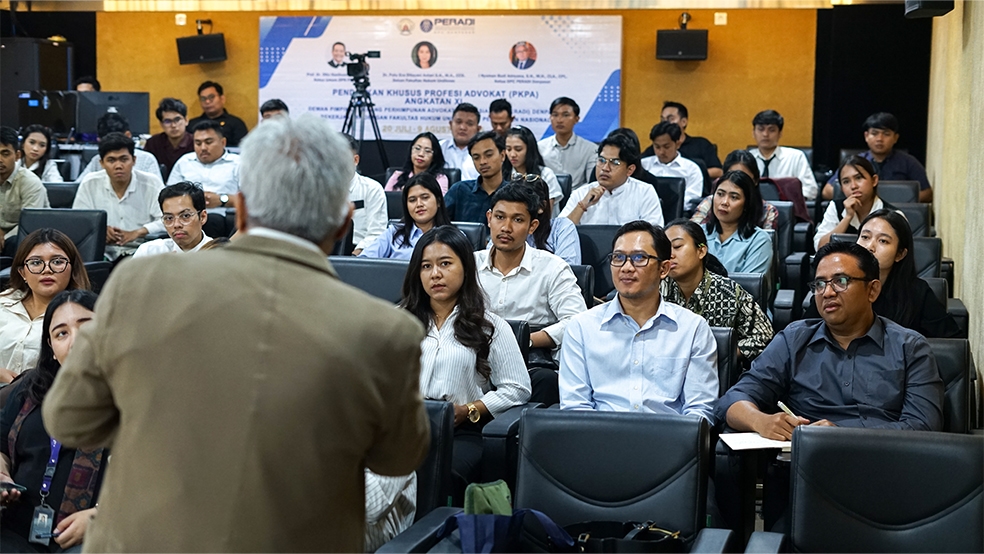
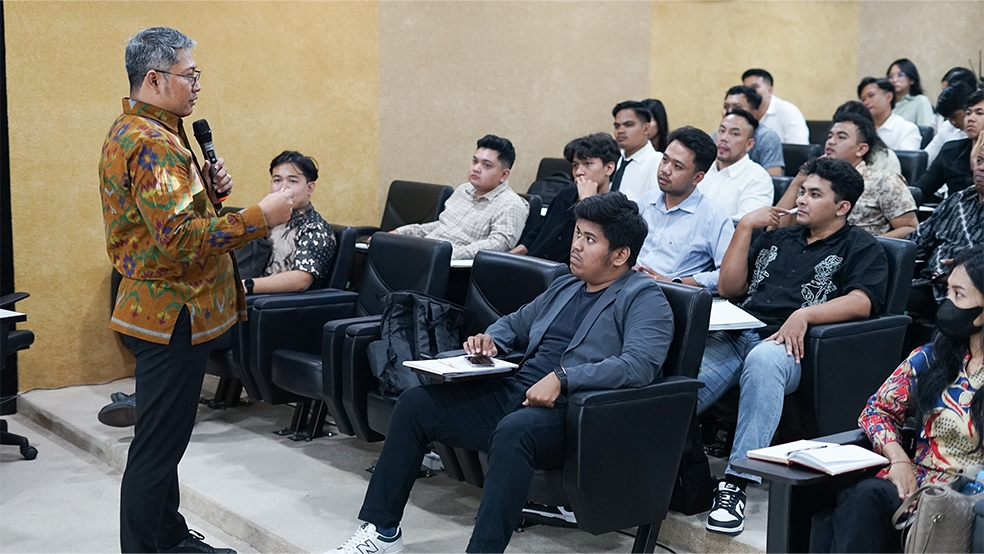
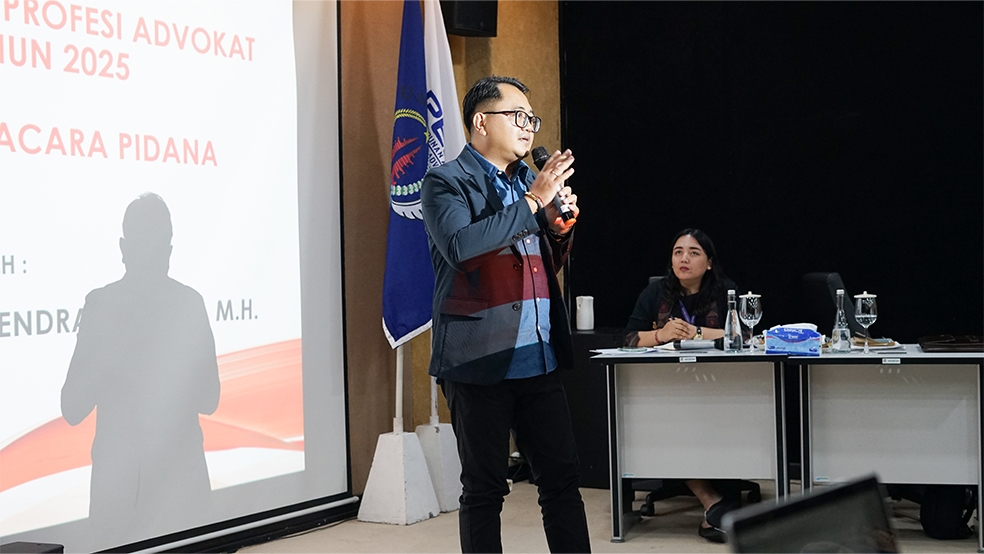
“The purpose of PKPA is to provide participants with relevant practical skills rather than simply repeating academic materials learned during their undergraduate law studies,” he said.
Topics such as consumer protection law and professional ethics are key components of the curriculum to give participants a comprehensive understanding of the challenges and responsibilities of the advocacy profession.
“Professional ethics is a vital element in shaping advocate integrity. The code of ethics serves as the primary guide, ensuring that every advocate understands the boundaries and obligations of their profession in a dignified and professional manner,” he added.
After completing the PKPA and receiving a certificate, participants are required to take the UPA. Upon passing, they must complete an internship at a law office or legal aid institution. Once their internship is completed and all requirements are met, they may be officially sworn in as licensed advocates.
Nyoman Budi Adnyana also expressed confidence in the quality of the PKPA program jointly organized by Peradi and Undiknas.
“With our extensive experience and commitment to excellence, I firmly believe that Peradi and Undiknas remain the leading providers of high-quality advocate training programs in Indonesia,” he concluded.
One of the speakers for this year’s program, Fahmi Yanuar Siregar, S.H., LL.M., delivered a session on Human Rights Court Procedures. He emphasized the distinct nature of this area of law, which is rooted in criminal procedure law but has specific characteristics—particularly regarding case processing timelines.
Fahmi focused on the technical aspects of legal representation in human rights cases, from investigation and inquiry phases to courtroom procedures.
“The key differences between general criminal law and human rights court procedures were explained in detail to help participants understand the complexities and unique aspects of handling such cases,” he noted.
To support the practical approach of the PKPA, the material also included practice questions and case simulations, giving participants a realistic sense of the challenges they will face during the UPA.
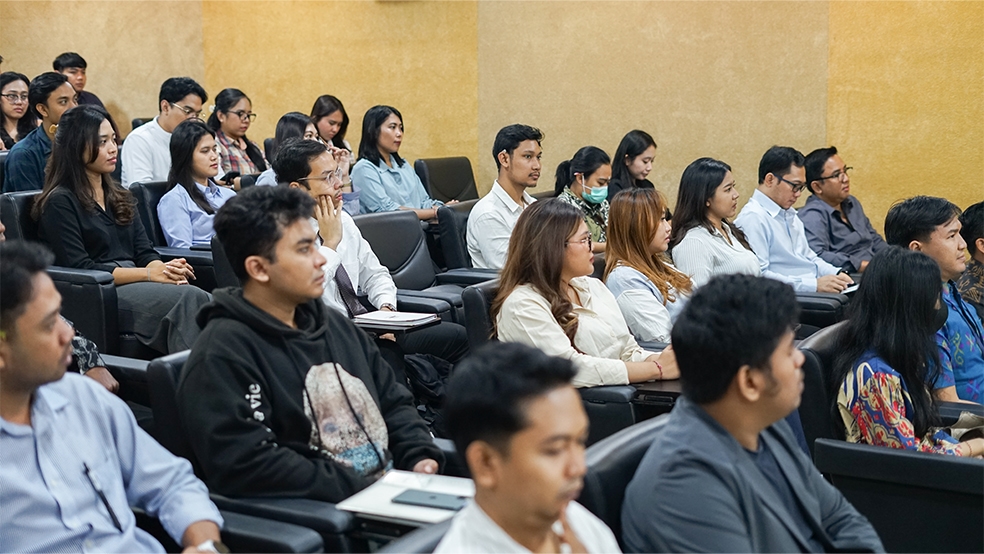
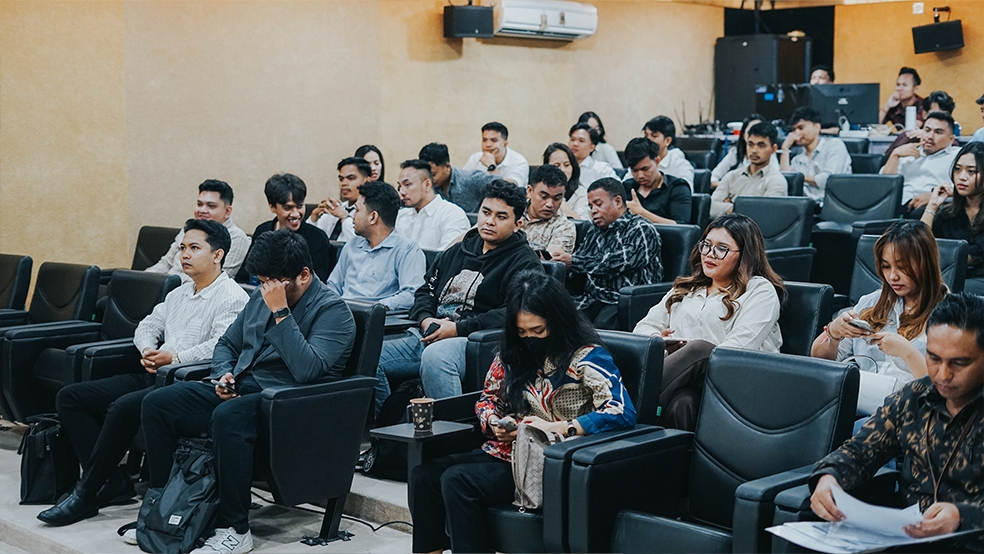
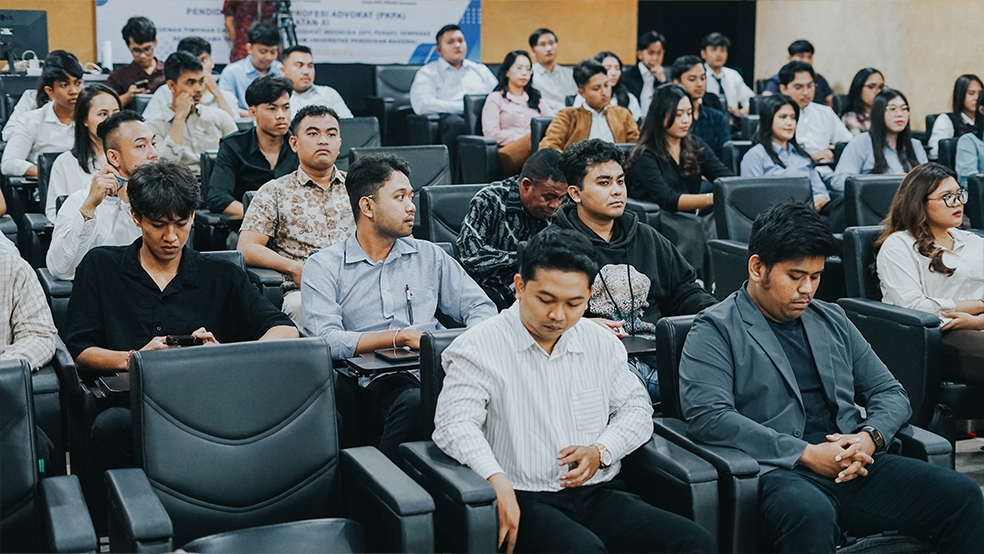
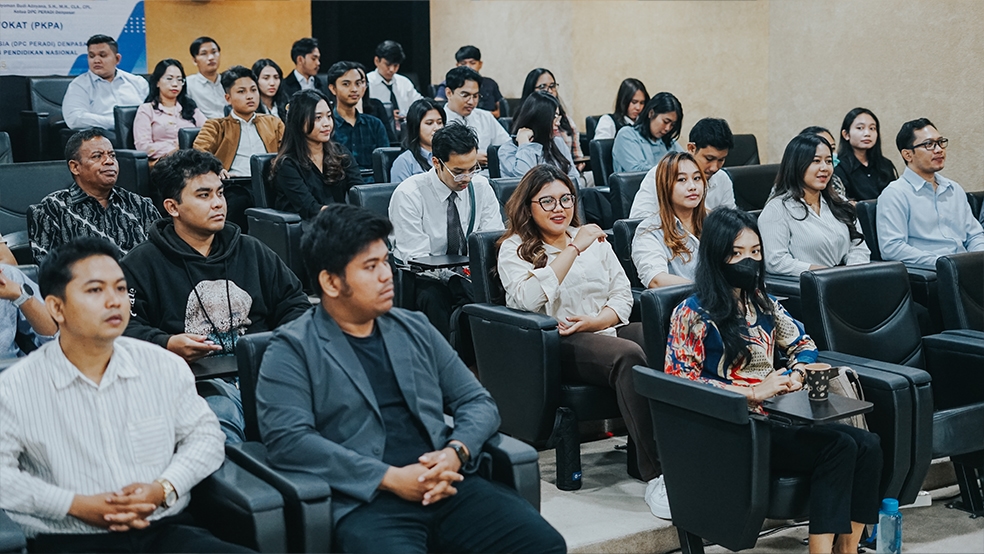
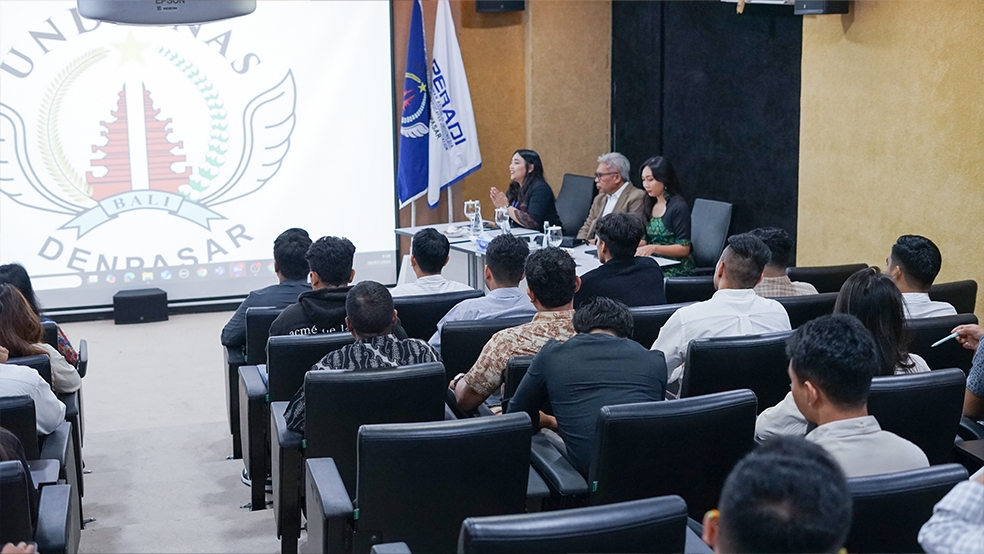
“I hope this method helps participants respond to questions accurately and analytically, based on a thorough understanding, and prepares them to become professional advocates after completing PKPA,” he concluded.
Through the 11th PKPA program, Undiknas and DPC Peradi Denpasar not only celebrate a proud milestone but also solidify their role as key institutions in shaping a new generation of professional, ethical, and forward-thinking advocates. The enthusiasm of 82 participants from various regions reflects the credibility and popularity of this program as a trusted platform for aspiring advocates.
Through sustained collaboration, a relevant curriculum, and full support from both academics and legal practitioners, the Undiknas–Peradi PKPA program continues to uphold quality and respond to the evolving legal landscape. It prepares participants not only to succeed in the Advocate Professional Examination but also to serve at the forefront of justice in society.
PKPA is not just a professional education—it is the beginning of a long journey toward a noble goal: to stand firm for the law and truth as a future advocate.

